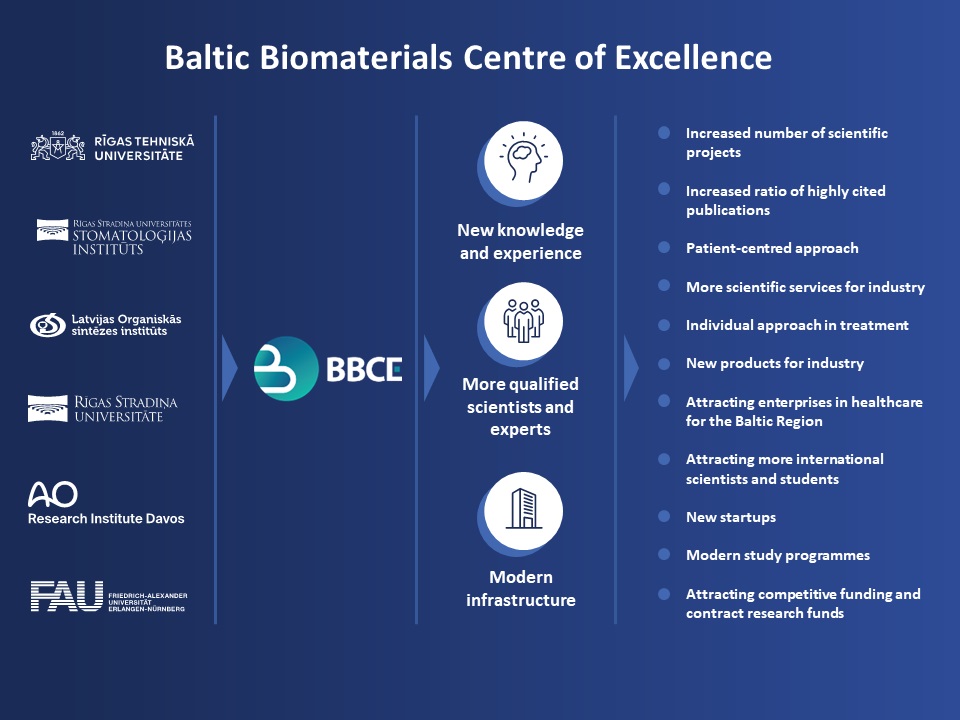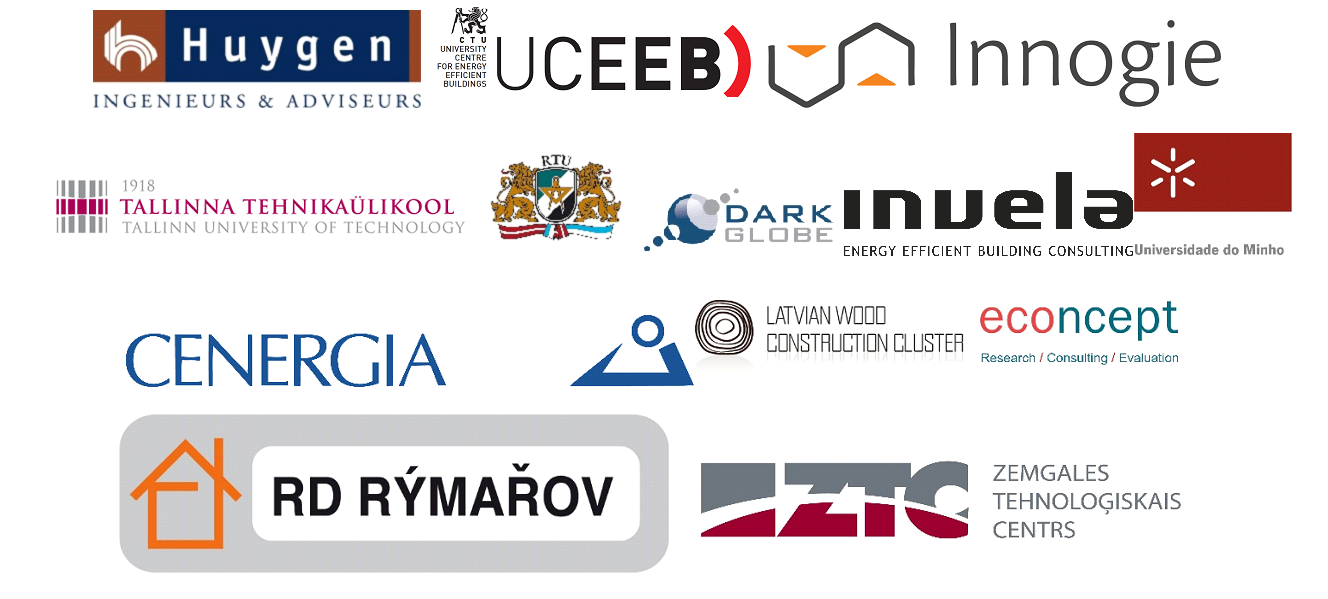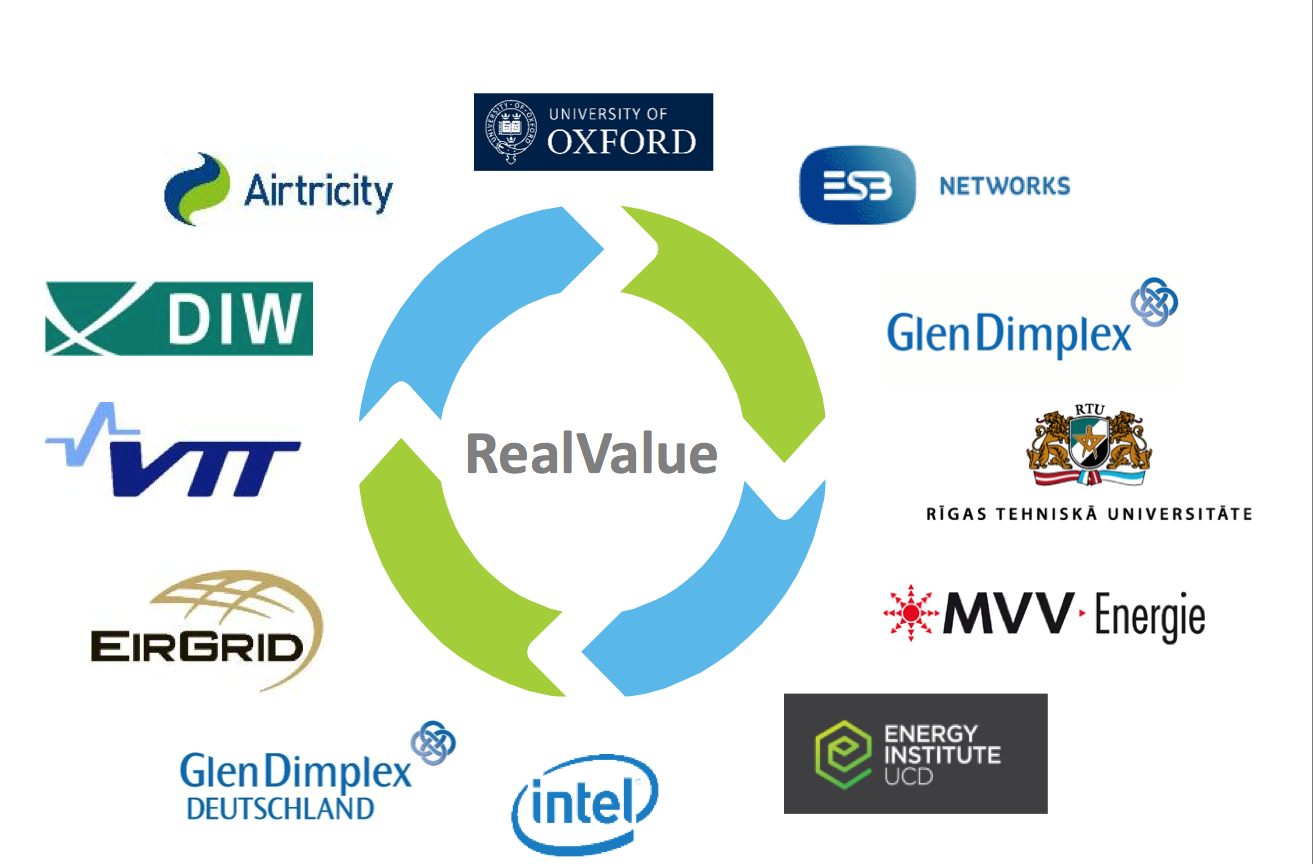Horizon 2020 is a new EU financial mechanism with the goal to ensure the global position of the EU in the field of research, innovation, and technology to facilitate European development and promote employment.
Since 2014, RTU has been implementing several research projects within the framework of this programme.
 The Baltic Biomaterials Centre of Excellence (BBCE) overall objective is to develop a joint BBCE for advanced biomaterials development based on the long-term strategic cooperation between Riga Technical University, Latvian Institute of Organic Synthesis, Rīga Stradiņš University and LLC Rīga Stradiņš University Institute of Stomatology, on the one part, and AO Research Institute Davos, Switzerland and Friedrich-Alexander University of ErlangenNuremberg, Germany, on the other part. The activities of the BBCE will provide an opportunity to combine existing expertise and infrastructure to create critical mass and excellence in the development of biomaterials for bone regeneration and solutions for creative biomedical applications. The expected impact of the BBCE project through Teaming Phase 2 in long term will be achieved through fruitful cooperation between the BBCE core partners in Latvia and industry (including SMEs) bringing the high performance products into the market, increasing scientific excellence, elevating the impact factor of peer-reviewed publications and Hirsch index in the field of biomaterials. Collecting «critical mass» of high level scientists and/or technology developers will be achieved ensuring career development to provide highly-qualified staff at BBCE core partners able to work in a multinational and interdisciplinary environment and capable to cope with their future career demands in an efficient and innovative way.
The Baltic Biomaterials Centre of Excellence (BBCE) overall objective is to develop a joint BBCE for advanced biomaterials development based on the long-term strategic cooperation between Riga Technical University, Latvian Institute of Organic Synthesis, Rīga Stradiņš University and LLC Rīga Stradiņš University Institute of Stomatology, on the one part, and AO Research Institute Davos, Switzerland and Friedrich-Alexander University of ErlangenNuremberg, Germany, on the other part. The activities of the BBCE will provide an opportunity to combine existing expertise and infrastructure to create critical mass and excellence in the development of biomaterials for bone regeneration and solutions for creative biomedical applications. The expected impact of the BBCE project through Teaming Phase 2 in long term will be achieved through fruitful cooperation between the BBCE core partners in Latvia and industry (including SMEs) bringing the high performance products into the market, increasing scientific excellence, elevating the impact factor of peer-reviewed publications and Hirsch index in the field of biomaterials. Collecting «critical mass» of high level scientists and/or technology developers will be achieved ensuring career development to provide highly-qualified staff at BBCE core partners able to work in a multinational and interdisciplinary environment and capable to cope with their future career demands in an efficient and innovative way.
Project scientific advisor at Riga Technical University:
Rudolfs Cimdins Riga Biomaterials Innovations and Development Centre of Riga Technical University,
Dr. sc. ing. Janis Locs ()
Project coordinator: Riga Technical University
EU funding: 14,999,869.50 €
Project implementation period: 01.01.2020.-31.12.2026. (84 months)
More information on the project: https://www.bbcentre.eu/
News:
Open positions for PhD students, PostDocs and Group leaders available at BBCE.
Are you ready for your next step in career?
Send your application till 14th of June. More information at: https://bbcentre.eu/news
 The goal of the project is to create and demonstrate industrially fabricated components for prefabricated building renovation element production in five European geoclusters. In durable, innovatively prefabricated building facade elements, the multi-functional components will be integrated for climate control, energy saving, as well as building durability and aesthetics provision. The prefabricated constructions will be mutually strengthened with innovative connections for ensuring mechanical strength, water, and air impermeability, as well as for utility compatibility.
The goal of the project is to create and demonstrate industrially fabricated components for prefabricated building renovation element production in five European geoclusters. In durable, innovatively prefabricated building facade elements, the multi-functional components will be integrated for climate control, energy saving, as well as building durability and aesthetics provision. The prefabricated constructions will be mutually strengthened with innovative connections for ensuring mechanical strength, water, and air impermeability, as well as for utility compatibility.
Within the project MORE CONNECT individually adjusted renovation concepts will be created, which will be developed in the process of standardized industrial production and composition, ensuring the client with delivery without intermediaries. As a result, the investments for almost zero total energy consumption building would pay back in less than 8 years, and the total construction time would take 5 days.
The concept will ensure essential energy consumption decrease, simultaneously guaranteeing both interior air quality and comfort.
Sustainable material usage in the renovation element production is anticipated within the project, and an innovative technology «Plug and play» will be developed for specific modular part connections.
Efficient component combination and installation will provide high performance by approaching zero total energy concept, healthy interior climate, safety, and environmental accessibility. Wireless sensors and control mechanisms will be used for module condition diagnosis and control.
During the renovation process, it is planned to use innovative geomatics solutions for building monitoring. The tools based in the network will provide the end users with an opportunity to choose the renovation solution and clarify its impact on the energy consumption, as well as the interior climate.
For construction work and production processes, the BIM (building information modelling) systems will be used, which will ensure quality control. In addition, the business models and energy solutions for each geographical region will be developed.
More information on the project: www.more-connect.eu and linkedin.com.
The Framework Programme for Research and Innovation Horizon 2020 priority «Societal Challenges»
Topic: Secure, Clean, and Efficient Energy
Funding scheme: Innovation activities
Project partners:

Project scientific advisor at Riga Technical University:
The Faculty of Building and Civil Engineering, Institute of Heat, Gas, and Water Technology, professor Anatolijs Borodiņecs
Total project expenses: € 5 557 263
EU funding: € 4 364 748.60
EU funding to Riga Technical University: € 336 700
Project implementation period: 01.12.2014.-01.12.2018. (48 months)
 The building overall renovation is an opportunity to preserve the present full economic energy efficiency potential of the building, which provides significant energy saving. However, in order to implement that, introduction of design, funding, and complex energy efficiency investment is necessary, which is limited in Latvia, because the majority of apartments is privately owned.
The building overall renovation is an opportunity to preserve the present full economic energy efficiency potential of the building, which provides significant energy saving. However, in order to implement that, introduction of design, funding, and complex energy efficiency investment is necessary, which is limited in Latvia, because the majority of apartments is privately owned.
Experience shows that lack of technical knowledge, limited funding accessibility, high risk, and reluctance to fund the debts are the barriers, which prevent the majority of residents from starting building renovation process. The apartment owners are insufficiently organized to manage their collective property, whereas the building condition deteriorates dramatically due to the Latvian weather conditions and inconsistent management.
The concept that solves the aforementioned problems is Energy Performance Contracting – EPC. The main feature of the EPC is that the EPC provider, the power service company (ESKO), guarantees energy savings.
The SUNShINE project supports the public and private ESKO. The project will ensure an innovative investment scheme for projects with the value of 30 million EUR, the guaranteed energy saving will be more than 26 GWh per year, and altogether more than 202,020 square meters will be fully renovated.
The main goal of the project is to demonstrate financial viability of a full building renovation project by using appropriate public funds and private capital. The offered possibility is easy, as well as innovative. The balance is limited for the majority of ESKOs, therefore, there is no possibility to serve several long-term debts simultaneously. Consequently, refinancing actually is reached by selling the future money flow (debts), by using forfeiting transaction. After this transaction ECKO continues to guarantee energy savings within the entire period of EPC agreement validity (15–20 years). Unfortunately, in the new ESKO markets where Latvia is included as well, no sufficient information is provided on this opportunity, as well as there is a lack of practical experience, therefore the banks are not ready to offer these services to ESKO. The project offers the same service, establishing a special purpose fund for EPC.
The Framework Programme for Research and Innovation Horizon 2020 priority «Societal Challenges», topic Secure, Clean, and Efficient Energy
Project scientific advisor at Riga Technical University: the leading researcher at the Institute of Environmental Protection and Heating Systems Marika Rošā .
Project coordinator: Riga Technical University
Project partners: «RenEsco» LTD (Latvia), The Birojs (Latvia), Funding for Future BV (the Netherlands), «Ekodoma» LTD (Latvia), «Salaspils Siltums» LTD, «eco.NRG» LTD.
Total project expenses: € 1 555 991.25
EU funding: € 1 555 991.25
EU funding to Riga Technical University: € 202 185
Project implementation period: 01.03.2015.-01.03.2018. (36 months)
 The goal of RealValue is to show how by using modern and progressive information and communication technologies (ICT) the accumulation of small amount of local energy optimized at the level of the EU power systems could offer benefits to all electric power market participants in Europe, starting from the residence owners up to the system operators, including power supply, distribution, management, and generation.
The goal of RealValue is to show how by using modern and progressive information and communication technologies (ICT) the accumulation of small amount of local energy optimized at the level of the EU power systems could offer benefits to all electric power market participants in Europe, starting from the residence owners up to the system operators, including power supply, distribution, management, and generation.
Within the framework of RealValue, the possibilities of Smart electric thermal accumulating equipment (Smart Electric Thermal Storage (SETS)) in real conditions will be demonstrated in 1250 objects within three countries: Germany (400), Latvia (50), and Ireland (800). At the EU level SETS is a direct substitute to the present electric heat accumulating heaters and water boilers with the total capacity of 55 GW, in addition, it can substitute also the direct (electric resistance) heaters with additional capacity of 93 GW. In order to show and evaluate the local small amount energy accumulation technical and commercial potential in the diverse energy market of the EU, as well as to check/validate the developed models, a large-scale modelling and virtual demonstrations will be carried out, extrapolating the acquired data to millions of objects in different regions of the EU.
On the basis of the research results, the feasibility study and behaviour analysis, small amount power accumulation introduction scenarios will be evaluated, feasibility analysis will be carried out, as well as business models will be developed, thus showing the small amount accumulation potential from the joint manageable load aspect and identifying the obstacles related to their integration in the power system and energy market. The recommendations will be prepared to inform the decision makers in the fields of the EU politics and legislation.
The RealValue consortium unites 12 partners from Ireland, Germany, Great Britain, Finland, and Latvia, comprising the scientific institutions, power companies, and industry representatives.

Total project expenses: 15 480 763 €
EU funding: 11 987 432 €
EU funding to Riga Technical University: 632 318 €
Project implementation period: 01.06.2015.-01.06.2018. (36 months)
Project scientific advisor
Prof. Dr.habil.sc.ing. Antans Sauhats
u.lv
Project scientific deputy advisor
Assoc.prof. Dr.sc.ing. Diāna Žalostība
?subject=E-mail%20from%20rtu.lv">
Riga Technical University (RTU) has taken a part in a project in order to develop an international Doctoral study programme in engineering sciences on thermal energy preserving technologies and their application in cooperation with 13 foreign universities.
The international programme developed within the project «PhD on Innovation Pathways for TES» will increase Doctoral student training efficiency and skills. RTU will implement this project applying the knowledge and skills acquired in the ESF funded joint project «The relevant sustainable and systematic solution development for almost zero consumption buildings suitable to the Latvian climate and qualitative life environment provision», as well as the infrastructure.
Project scientific advisor at Riga Technical University:
RTU Department of Structural Analysis, professor Diāna Bajāre .
Project coordinator: the University of Lleida (Spain)
Project partners:
Universitat de Lleida (Spain), Universitat de Barcelona (Spain), University of Ulster (the United Kingdom), University of Çukurova (Turkey), Trinity College Dublin (Ireland), Universita della Calabria (Italy), Universita Degli Studi Di Perugia (Italy), Ben-Gurion University of the Negev (Israel), Universidade do Minho (Portugal), Universiteit Gent (Belgium), Politechnika Warszawska (Poland), Technische Universiteit Eindhoven (the Netherlands), Université de Lyon (France) and Riga Technical University. Scientific institutes: AIT (Austria), DLR (Germany), and PROMES-CNRS (France). Enterprises: Arcelik (Turkey), Abengoa Solar NT (Spain), KIC InnoEnergy (the Netherlands), UFP (Spain), and LAIF (Italy).
Total project expenses: 4 301 072.66 €
EU funding: 193858.80 €
EU funding to Riga Technical University: 193858.80 €
Project implementation period 1.05.2015-30.04.2017 (36 months)